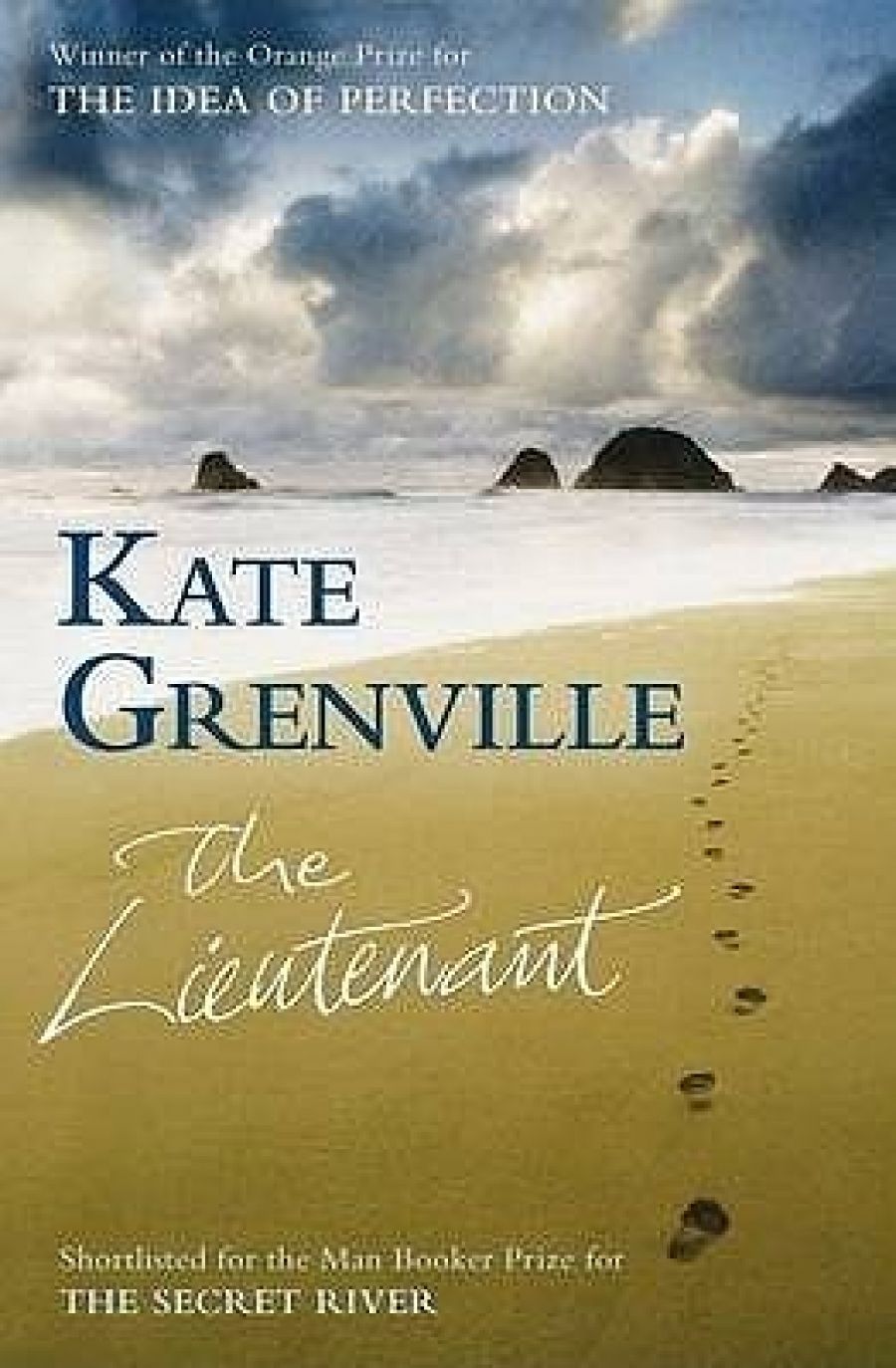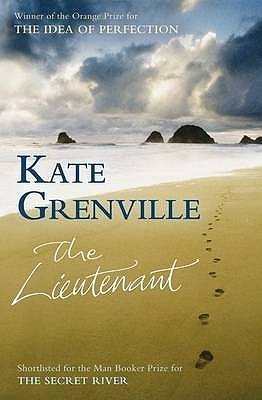
- Free Article: No
- Contents Category: Australian Fiction
- Review Article: Yes
- Article Title: Accommodating the past
- Online Only: No
- Custom Highlight Text:
In 2006, a year after the publication of Kate Grenville’s The Secret River, Inga Clendinnen published ‘The History Question’ as part of Black Inc.’s Quarterly Essay series. ‘The History Question’ was, as its subtitle ‘Who Owns the Past?’ suggests, a wide-ranging meditation on the nature of historical understanding, and, more specifically, its uses and abuses. But at its heart lay an extended and surprisingly savage critique of The Secret River, the claims Clendinnen believed Grenville had made for it, and for fiction’s capacity to illuminate the past; and, more deeply, of the very idea of historical fiction.
- Book 1 Title: The Lieutenant
- Book 1 Biblio: Text, $45 hb, 307 pp
- Book 1 Cover Small (400 x 600):

- Book 1 Cover (800 x 1200):

Clendinnen took particular exception to the political tenor of Grenville’s book, not least its ‘very contemporary delicacy of mind’ when it came to the question of entering the minds of the Aboriginal people who inhabit its narrative; and to the novel’s lack of historical ‘accuracy’, and its seemingly ‘opportunistic transpositions and elisions’ of historical fact. Her point was essentially methodological: where the novelist seeks psychological explanations, the historian sees competition over resources; where the historian admits the impossibility of understanding the inner lives and motives of the dead, the novelist intrudes, projecting contemporary beliefs and values, and remaking the past to flatter the present.
It is difficult to imagine how bruising the experience must have been for Grenville. Whether or not she was guilty of what Clendinnen rather silkily described as the novelist’s practised ‘slither between “this is a serious work of history” and “judge me only on my literary art”’ is a matter of whose account of Grenville’s statements in interviews one chooses to believe (both Grenville and Clendinnen published responses addressing these questions). But she can hardly have expected to have drawn the fire she did, particularly not for a novel so deliberately worthy in its intent.
It may be surprising, therefore, that Grenville’s new novel, The Lieutenant, returns to the same profoundly contested territory. Set in the first months of European settlement, it draws upon the historical story of William Dawes, the man who came to act as the First Fleet’s resident astronomer, and his relationship with Patyegarang, a young Aboriginal girl who frequented the observatory that Dawes built some distance from the main settlement. It was a friendship that allowed Dawes to make an incomplete study of the language of Patyegarang and her people, and that eventually led to Dawes’s refusing an order from Arthur Phillip to carry out retributions against the local Aborigines.
The attraction of Dawes and his story to a novelist is obvious, not least because it already enjoys a shape and a tension that history rarely offers. Dawes is a deeply attractive figure, for all his religiosity, a gentle man whom Elizabeth Macarthur described as ‘so much engaged by the stars that to mortal eyes he is not always visible’. How could one not respond to the sense that, in the friendship between Dawes and Patyegarang, it is possible to see a moment in which the future history of the colony, the inevitable logic of two people and one place, remained unwritten?
The question of how to handle fictional accounts of real lives is always problematic for the writer of fiction. Historical fact may offer imaginative possibility, but it simultaneously constrains it as well. And so, whether in an attempt to forestall further criticism from Clendinnen and others, or out of a desire for the space to make the story her own, Grenville has transposed Dawes into the fictional Daniel Rooke, retaining both the shape and much of the specific detail of Dawes’s life, but freeing her narrative from the strictures of fact.
In and of itself, this decision is unexceptionable. But Grenville goes further, transposing the entire First Fleet into a fictional version of itself. The Sirius remains, as do the dates and most of the events, but the actors are reimagined into fictional counterparts, Arthur Phillip becoming James Gilbert, Watkin Tench Talbot Silk, Bennelong Boinbar.
It is of course a mistake to submit to the increasing tendency to assume that fiction can only be interpreted through its relationship with historical and biographical sources. Yet for anyone with even the haziest grasp of the history, the effect is deeply disconcerting. Rather than universalising Grenville’s narrative or opening the reader’s eyes to new possibilities, it actually erodes the novel’s authority, highlighting its artificiality. The result is a book which, despite Grenville’s very real skills as a novelist, and the considerable imaginative energy she brings to bear upon her subject, remains mired in the same mess of historical pastiche that entraps Eleanor Dark’s The Timeless Land (1941), neither history (with all the restrictions that implies) nor truly fiction in its own right, but some unsatisfying amalgam of the two.
In many ways this is a pity, because there is much to enjoy in The Lieutenant. As ever, the unshowy surfaces of Grenville’s prose disguise a novelist in complete command of her form. Save for the opening section, with its oddly unconvincing account of Rooke’s childhood, The Lieutenant is almost flawlessly constructed and written with economy and grace. One feels Grenville’s love of the landscape of which she writes, her sympathy for her characters, the quickness of her eye for human detail. For all that she often seems to be conjuring with types (the watchful and solitary Rooke, the narrowly authoritarian Gilbert, ‘an angled sort of man, all elbows and shoulders ... who took cautious steps on that sloping deck, and always that tilt to his thin body, and the sour look on his face’, the charming and socially fluid Silk), they are drawn with skill and even subtlety.
Perhaps unsurprisingly, the heart of the novel is the relationship between Rooke and Patyegarang’s fictional counterpart, Tagaran. If The Secret River is a novel built around two enduring images – that of the fish on the rock hidden by the white man’s house, and the ill-fated and mutually uncomprehending encounter between Thornhill and the Aborigines whose land he has taken possession of – The Lieutenant seeks to explore the possibilities of a quite different sort of encounter, one in which, however briefly, some moment of mutual understanding occurs.
The late Greg Dening liked to describe these moments of encounter as ‘beaches’ (not for nothing does the encounter in The Secret River take place on the banks of the Hawkesbury), liminal spaces in which we are unmade and remade. And there can be little doubt that The Lieutenant poignantly captures the immense possibility embodied in the friendship between the lonely Rooke and the quick-witted Tagaran. Yet Grenville is really interested in exploring the limits of this comprehension, the meanings that slip between words. At one point Rooke turns to his beloved Montaigne, and his favourite essay, ‘On Thumbs’; but it is not ‘On Thumbs’ we find ourselves recalling as we watch Rooke struggling with the limits of language, but the ‘Apology for Raymond Sebond’, with its teasing reminder of the ultimate inscrutability of others: ‘When I play with my cat, who knows but that she regards me more as a plaything than I do her?’
Ultimately, though, there is a deeper problem at work in The Lieutenant. For all that it seeks to give breath to a past and a people who have vanished (Grenville dedicates the book to Patyegarang and the Cadigal people), it is an inescapably contemporary creation.
Grenville would presumably argue that the moments of possibility it explores are timeless, and perhaps they are, but the novel itself most certainly is not. Even Rooke himself, transformed from the intensely religious Dawes described by Tench into a mildly autistic savant, a man with a ‘craving for the exact’, is a very modern incarnation of the novel’s slightly schematic opposition between the classificatory scientific mind of the Europeans and the Aborigines in their state of oneness with the land, right down to his careful appropriation of social behaviours and his discomfort with eye contact. (Grenville, to her credit, leaves the connection between language and Rooke’s mind unspoken.)
The result is a book which, for all its pleasures, is really the expression of our present-day desire to find accommodation with the past, and which, for all that it tries to explore the way in which we see others through the prism of our own understandings, seeks to remake the past in its own image, robbing it of precisely the strangeness and possibility it wishes to explore.


Comments powered by CComment